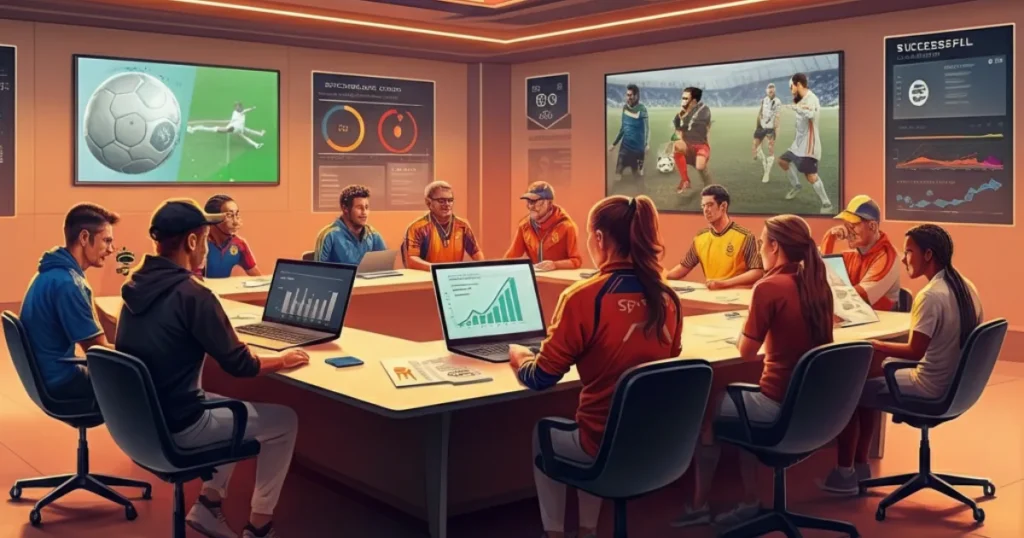Feedback is a crucial element in any professional, personal, or athletic development process. For athletes, coaches, and sports enthusiasts, Avis des entraineurs (coach feedback) is a foundational tool that fosters growth, improves performance, and creates a culture of continuous improvement. Whether you’re a competitive athlete or someone looking to refine your skills, leveraging Avis des entraineurs can make a significant difference in achieving your goals.
This blog dives into the concept of Avis des entraineurs, explores its benefits, and provides practical advice on its effective implementation. We’ll also highlight inspiring real-life examples to show how this feedback approach has driven success for many individuals and teams.
Why Avis des Entraineurs Is Important
At its core, Avis des entraineurs revolves around coach-driven feedback tailored to an athlete’s specific abilities, skill levels, and goals. But why does it matter so much?
- Personalized Growth
Coaches have an eye for detail and can observe nuances in an athlete’s performance that may go unnoticed by the individual themselves. Their feedback doesn’t just point out areas for improvement but also highlights strengths and achievements that can be built upon.
- Motivation and Encouragement
Effective coach feedback is not solely criticisms; it serves to motivate and inspire, providing athletes with actionable steps toward measurable improvement.
- Targeted Skill Development
Whether focusing on technical skills, strategic thinking, or athletic conditioning, coach feedback ensures that efforts are directed toward meaningful enhancements rather than tackling everything all at once.
- Building Trust and Connection
Avis des entraineurs strengthens the athlete-coach bond. Personal, constructive feedback creates an environment of trust where both parties feel invested in the same goals.
By paying attention to detailed and constructive feedback, athletes can expand beyond perceived limitations.
The Benefits of Using Avis des Entraineurs
Implementing a structured approach to Avis des entraineurs offers tangible and measurable benefits for both athletes and coaches. Here are some of the standout advantages:
1. Improved Performance
When athletes receive precise and detailed feedback, they can immediately adjust their approach. Whether on the field or in the gym, these changes lead to fine-tuned mechanics, better techniques, and overall improved output.
2. Cultivation of a Growth Mindset
Feedback creates a learning loop. When athletes view constructive criticism as an opportunity rather than a setback, they step into a space of continuous self-improvement, adopting resilience and determination as part of their mindset.
3. Enhanced Communication Skills
Through the Avis des entraineurs process, both athletes and coaches improve in delivering and receiving feedback respectfully. This dynamic translates to better communication both on and off the field, fostering teamwork and collaboration.
4. Strengthened Leadership
For coaches, engaging in effective feedback practices sharpens leadership abilities. They gain a deeper understanding of what works for individual athletes, helping them adapt their coaching techniques for maximum impact.
Types of Avis des Entraineurs
Not all feedback is created equal. Different types of Avis des entraineurs serve varying purposes depending on the context and timing. Here are the common forms:
1. Immediate, On-the-Spot Feedback
This occurs during practices, games, or training sessions where coaches provide real-time insights on technique or strategy. It’s highly effective for addressing issues before they become ingrained habits.
2. Reflective Post-Session Reviews
After a game or training session, athletes and coaches reflect on what went well and areas for improvement. This feedback often involves video analysis, written notes, or verbal discussions.
3. Goal-Oriented Feedback
This type focuses on progress toward specific objectives. It’s particularly useful for tracking long-term improvements over time, often tied to performance metrics or benchmarks.
4. Group vs. Individual Feedback
Group sessions address team dynamics and collective goals, while one-on-one feedback provides individualized attention tailored to personal growth. Balancing the two is key to fostering both team cohesion and individual excellence.
Tips to Implement Avis des Entraineurs Effectively
Great feedback doesn’t happen by chance. It requires intentional strategies to ensure both the coach’s and athlete’s efforts lead to actionable and valuable results.
Here are five practical strategies to maximize the impact of Avis des entraineurs:
1. Be Specific
General feedback like “Do better” or “Keep trying” offers no direction. Instead, aim for specificity—for example:
- “Focus on keeping your elbows tucked during the push movement to enhance your form.”
- “Your shots are off-center; let’s work on aiming toward the upper left post.”
2. Balance Positives and Improvement Areas
Feedback shouldn’t feel like a critique session. Start by reinforcing strengths before segueing into improvement opportunities. This approach keeps the athlete motivated while receptive to feedback.
3. Align Feedback With Goals
Always tie feedback to an athlete’s broader goals. If the overarching objective is improving agility, the feedback should focus on drills and techniques directly connected to that aim.
4. Use Technology
Leverage tools like video analysis platforms, wearable tech, and performance tracking apps to complement verbal feedback with visual data. Often, seeing themselves perform can make it easier for athletes to understand what they’re doing wrong (or right).
5. Create a Feedback Loop
Implement a continuous feedback cycle where the athlete receives coaching, practices the suggested changes, and attends follow-up sessions to evaluate progress. A loop ensures that the guidance has been applied effectively.
Real-Life Examples of Avis des Entraineurs in Action
Case studies demonstrate that the Avis des entraineurs approach works across different levels—from amateur athletes training on weekends to elite professionals.
Case Study 1 The High School Basketball Team
A coach implemented a post-game video session where players analyzed their performances, identified areas for improvement, and set personal goals for the next game. Over the season, players showed measurable improvements, with the team’s overall shooting accuracy increasing by 15%.
Case Study 2 The Marathon Runner
Using wearable devices for real-time pace and heartbeat monitoring, the coach provided instant feedback on energy conservation during training runs. Within two months, the athlete was running longer distances without fatigue.
Case Study 3 Professional Soccer Training
A soccer team integrated AI-based video software to review each player’s position and movement during games. Coaches gave players targeted suggestions on positioning, leading to enhanced team coordination and higher win rates.
Take Feedback and Go Further
Feedback is the backbone of achieving excellence in sports (and any endeavor). Avis des entraineurs makes that possible. By understanding its importance, leveraging different types, and implementing effective feedback strategies, athletes and coaches can elevate performance to the next level.
Remember, feedback isn’t just advice; it’s an ongoing conversation that drives change. Whether you’re coaching a team, mentoring one-on-one, or an athlete seeking improvement, actively engaging with constructive feedback will open the door to limitless possibilities.
Looking to go deeper? Explore tools and resources specifically designed to make Avis des entraineurs even more impactful. Create a feedback-rich environment and start outperforming expectations today.







